The best mountain backpack. Comparison & Buying Guide
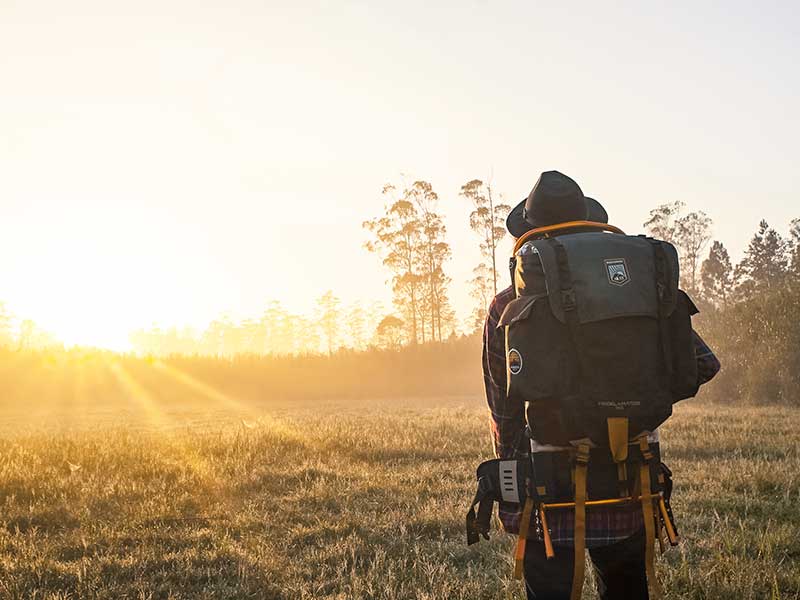
To choose the ideal mountain backpack, here is a list of qualities to take into account, taking into account three essential factors: the comfortthe capacity and the qualities or extra advantages it may have; also taking into account the type of activity you intend to do.
READ ALSO: The Best Travel Backpacks for 2020, all types".
What should I consider when choosing a backpack?
Please note the following characteristics:
- What is the activity How you will use the backpack is vital in determining which one to buy, as there are options for different outdoor activities (more on the different types of backpacks later), which come equipped with special pockets, more resistant fabric, etc., for example.
- What is the capacity You also need to pay attention to the dimensions of the backpack you buy. It will depend on the amount of equipment you plan to carry. The capacity will be measured in litres.
- Do you need any specific feature?: Some people look for extra features in the backpacks they want to buy, such as extra sleeping bag compartments, for example.
- AdjustmentSome people require a specific adjustment that only some backpacks include. In any case, the torso length and hip size are very important adjustment factors to ensure that your health is not affected in the long term.
Types of backpacks: capacity and use
The size of your mountaineering backpack is one of the primary points to define, and although below is an overview of the main sizes, as well as some recommendations, this will also depend on the amount of equipment you need for your activity; i.e. a climbing trip will require more equipment and therefore a larger backpack than a day trip backpack.
Mountain backpack 10 - 30 litres: for a day hike
Backpacks with capacity of 10 litres or less are designed for light activities such as running, road cycling or very short hikes. The compact design offers space for just a handful of essentials, such as an ultralight jacket, a few energy bars and your keys.
In the case of backpacks with capacity between 10 and 20 litresare designed for practices such as hikingThey can be used for mountain biking, long-distance running or travelling. They have the capacity to carry some clothes, food and equipment for day trips. Depending on the equipment we need, we can opt for a 30-litre backpackfor hiking in winter.
The model Salomon Evasion 25 (click to view) is an ultralight and durable backpack, something that is often difficult to combine, ideal for day trips. We also have the smaller 20 litre sister Salomon Evasion 20. Another interesting model with a slightly higher capacity is the Millet Ubic 30 (buy it from 134 euros)ideal for mountaineering, trekking and mountaineering.
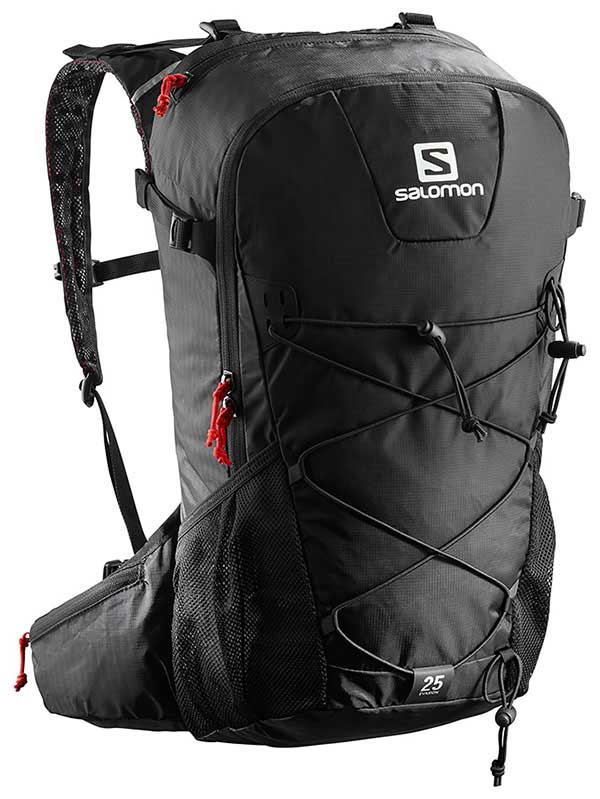
30-40 litre rucksack: for weekends
The backpacks between 30 and 40 litres are ideal for short trips of 1 to 3 nights with little equipment, e.g. in the summer season. Perfect for hiking and travel. These have the enough capacity to store food, clothes and a few extras, such as a camera and a book..
In this category we have some very interesting 40 litre models such as
Altus backpack KHUMBU 40with AirSpace SYSTEM for ventilation of the back; or with a slightly larger capacity, the backpack can also be used as a backpack. Osprey Kestrel 48 (Click here to buy).
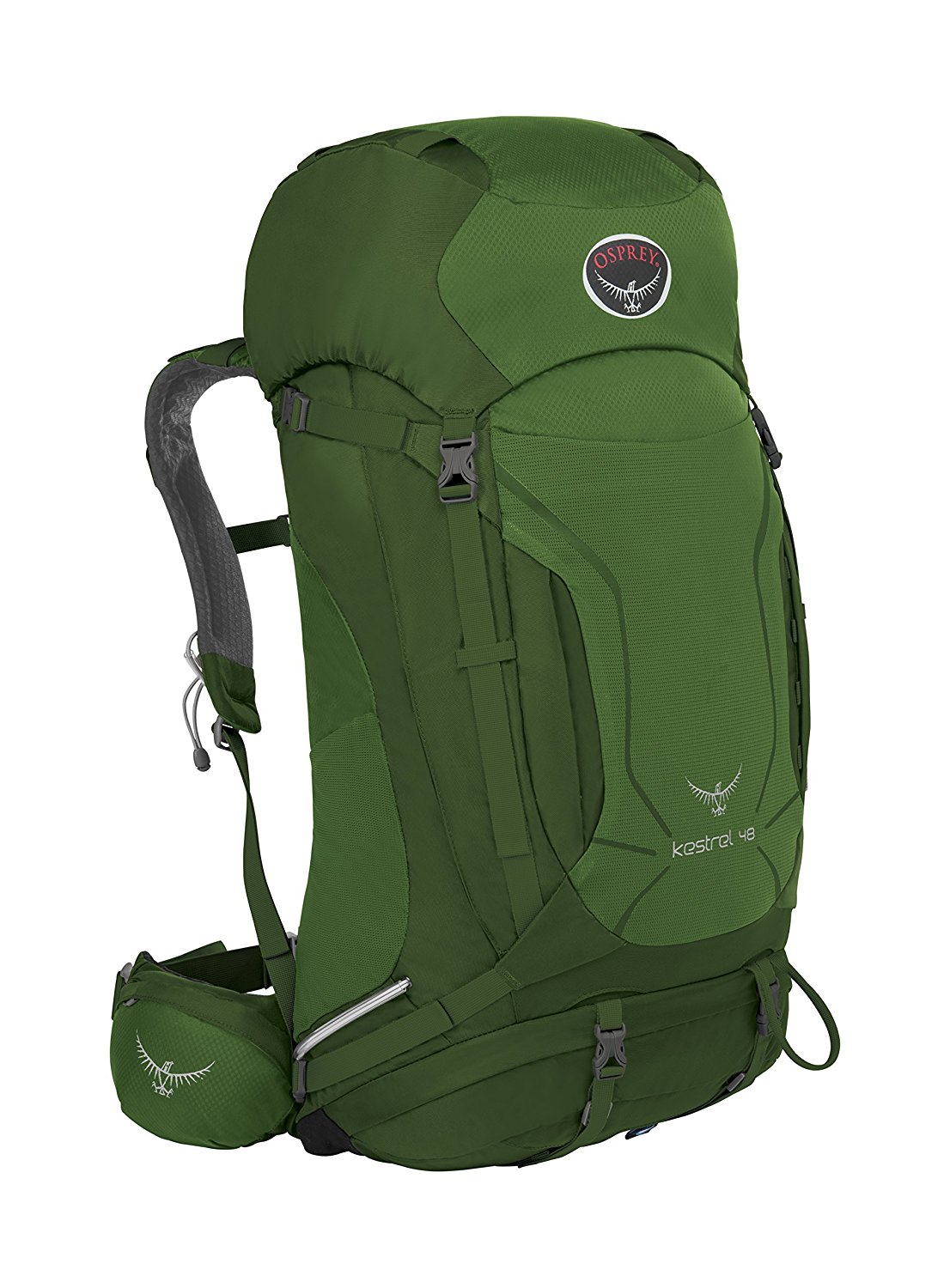
50-65 litre rucksack: for multi-day hikes
Labelled as 'multi-day' backpacks, they will regularly serve you well for those 3-5 night trips, as as well as usually having greater qualities, they also extend their capacity to about 65 or more.
An interesting model is the backpack Millet Ubic 50 (Click here to buy)which has a capacity of 50+10 litres, and is equipped with the system Variloop System for the placement of the material on the backpack, as well as being very comfortable on the back.
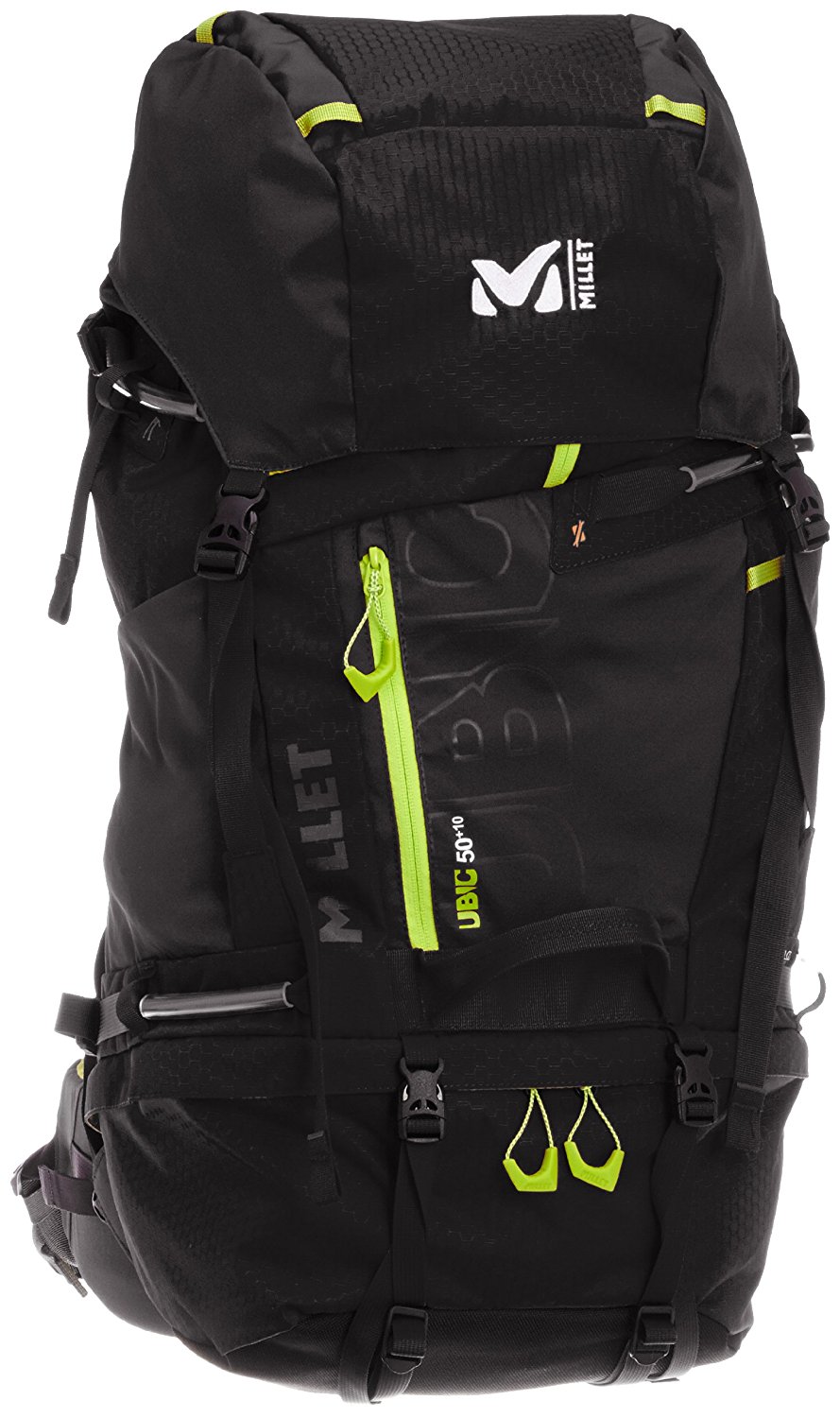
Ideal for mountain trips, as it can be stowed away in a bag technical clothing and additional equipment for activities such as climbing, mountaineering or summer hiking. Often chosen by parents because they need to carry clothing and equipment for their children - some even allow you to carry camping gear!
Over 65 litres: for long journeys
If it is a trip of more than 5 days or where you require more than 5 days of travel time, you will need to 70 litres capacity, these types of backpacks are more convenient. Just remember that the bigger it is, the heavier it will be, so it is not advisable to choose a huge, unwieldy backpack either, as it will be uncomfortable and will complicate the travel.
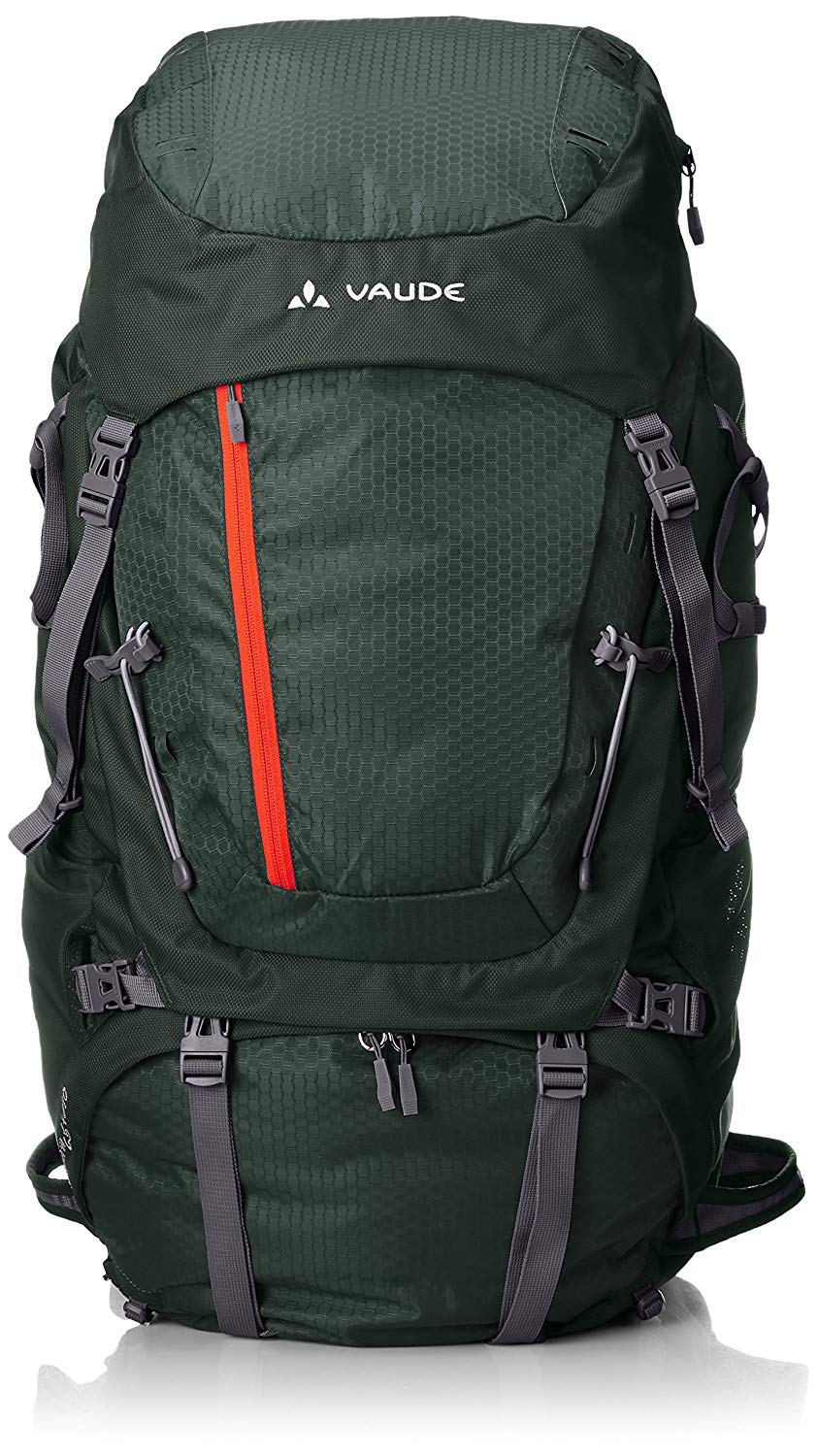
Types of backpacks according to the activity you are going to do
There are, as mentioned, backpacks that adapt to the activity you want to do. This is because each design is adapted to the needs of the user during the activity.
Trekking and hiking backpack
In the case of backpacks for hikingfor example, has a large number of compartments and pockets to store water bottles without them getting too hot. As mentioned above, depending on the activity, we will go for one capacity or another. An exceptionally good value for money backpack for hiking is the Highlander RUC181-RD Discovery (you can find it on Amazon from 55,7 euros.). For day trips in advance we have presented you the Millet Ubic 30 (Click to view) or Salomon's 25-litre model (From 45 euros).
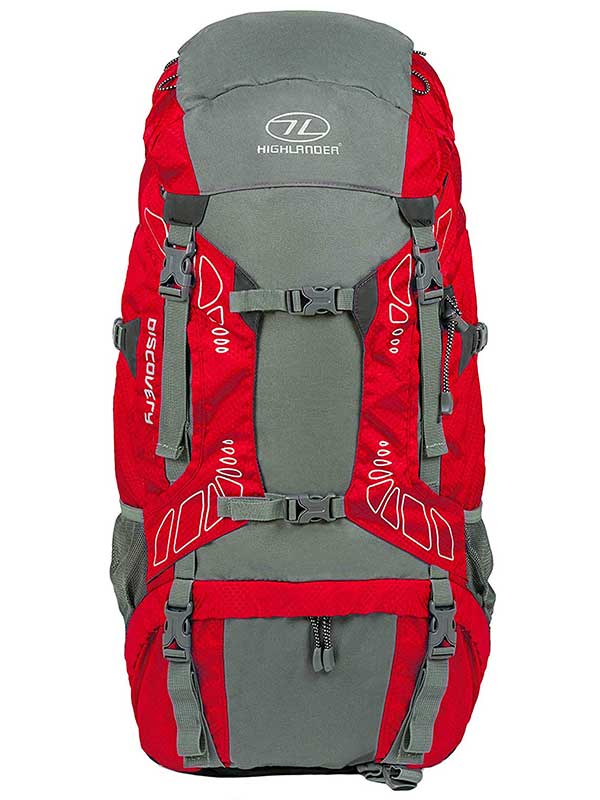
Highlander RUC181-RD Discovery
Mountaineering backpack
If you like the mountaineeringIf you're looking for a backpack with a slim design that allows you to move around comfortably and without getting in your way, then you'll need a backpack with a slim design that allows you to move around comfortably and without getting in your way.
In addition, they also include a padded backrest or a kind of armour that reinforces the backpack against the weight, but also allows the weight to be better distributed on your body.
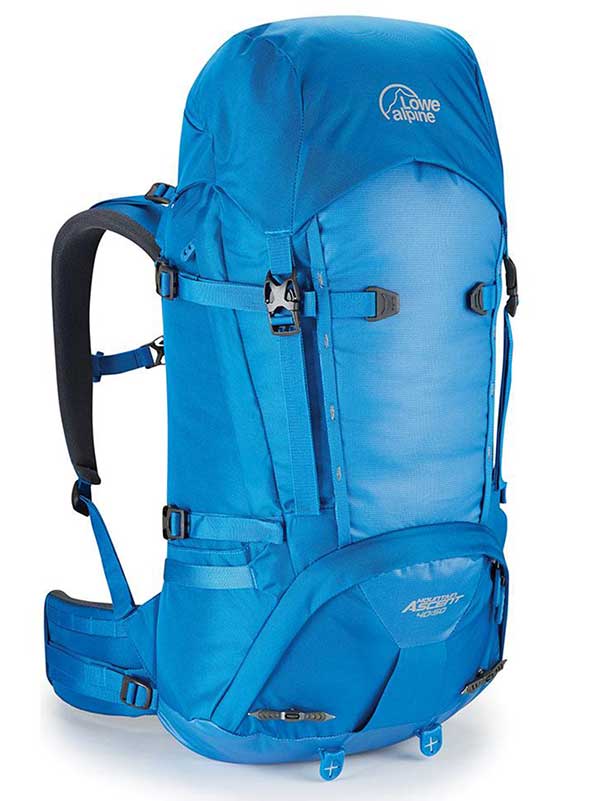
It includes specialised features, such as a loop for ice axecrampon patches, crampon patches and a daisy chain to attach the equipment.and other details.
Mochila trail running
If you are planning an outdoor activity such as runthen you will need a backpack that is smallthat does not bother you when you run, but that also has easy-access pockets for hydration and some snacks. That's why there are backpacks that have these features and even include accessories that allow you to fit more water bottles, for example.
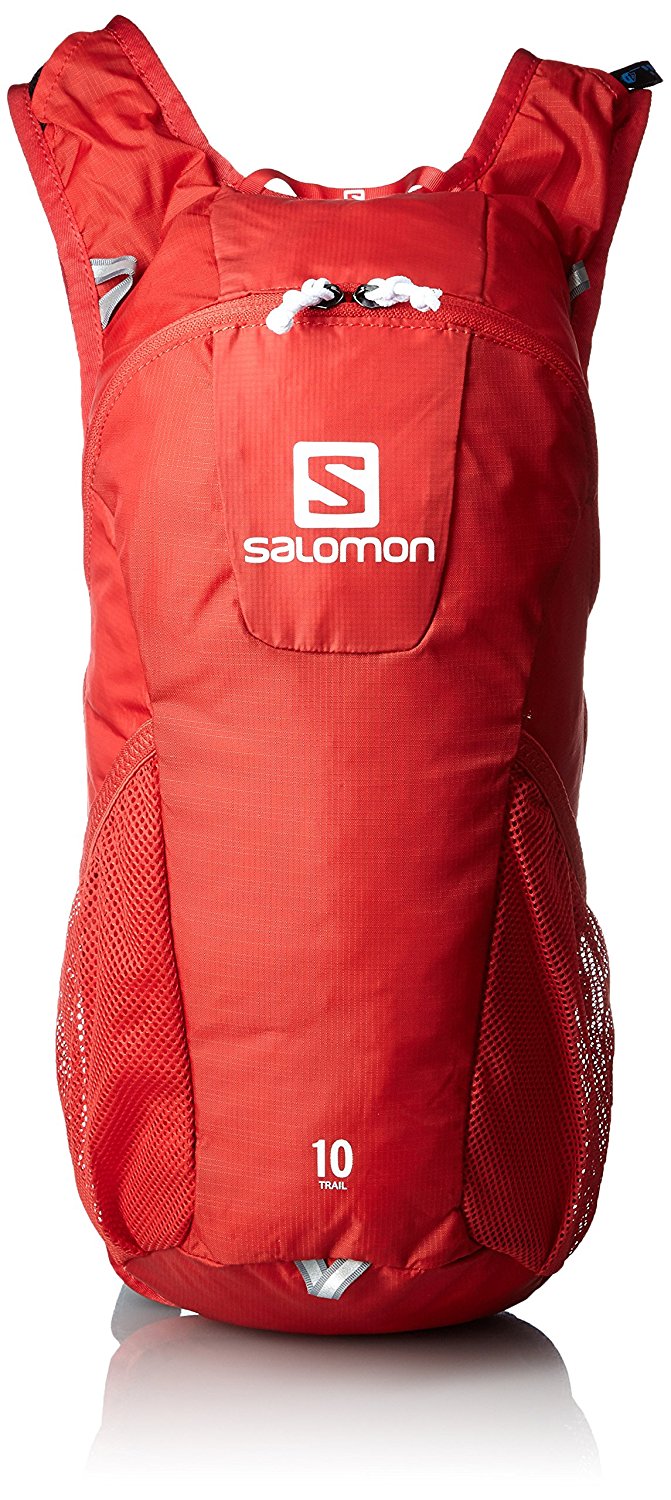
Backpacks for travelling
In case you have to travelIf you have a backpack, then your backpack needs to have specific features. They can have double zips that expand space, panel-like openings in the front, and are the right size to fulfil the function of a carry-on bag.
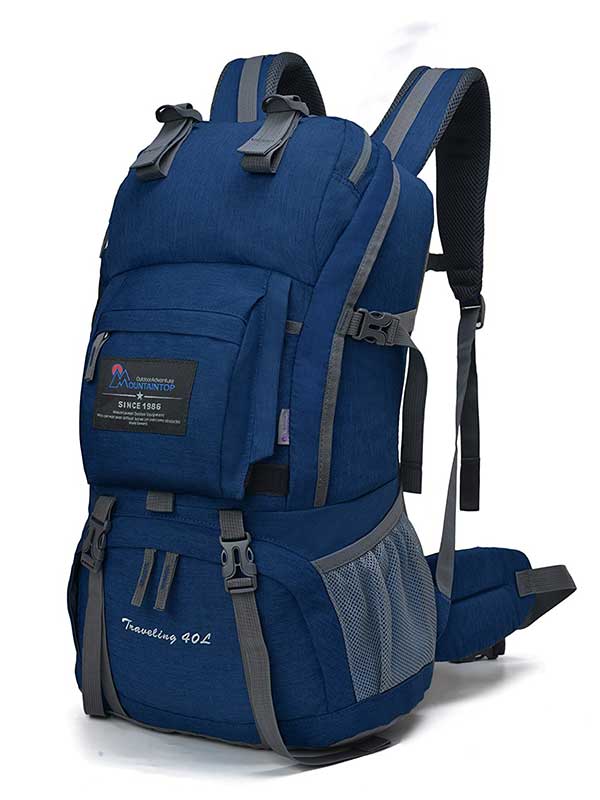
Cycling backpack
The cyclistsOn the other hand, they require backpacks that are compact, lightweight and stable in design so as not to generate weight or create wind resistance. Cycling backpacks in general have these characteristics, as well as space to accommodate bike repair tools, clothing, and other necessary equipment.

CamelBak Lobo
Ski backpack
In case you need a backpack to do snow sportsIf you're looking for a slim fit, then you'll need one that allows you to move smoothly, has a good fit so that it doesn't sway while you're doing sport, not to mention the fact that you'll require accessories or compartments for your equipment (skis, snowboard, rackets snowshoes, etc.). Many of these backpacks even have a space to keep a snow shovel and probe handy.
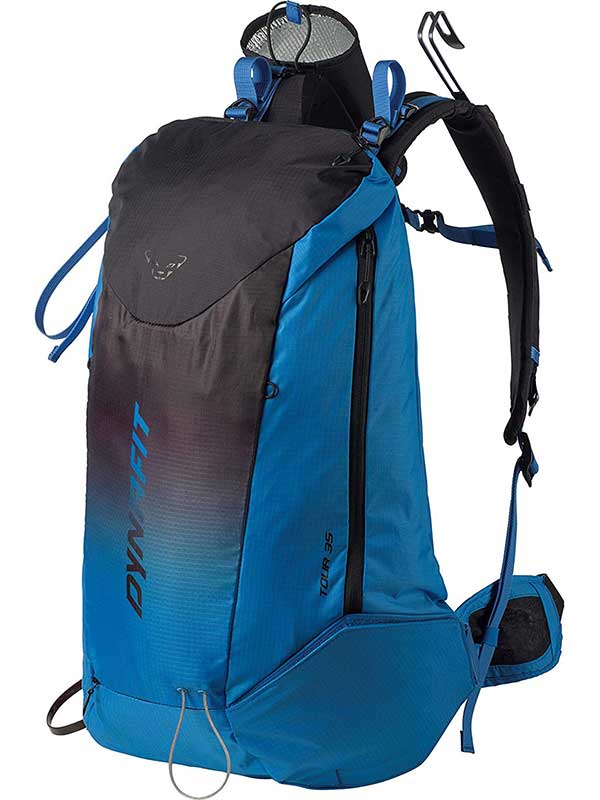
Dynafit Tour 35
Climbing backpacks".
Very technical and specific backpack with details for climbing and mountaineering.
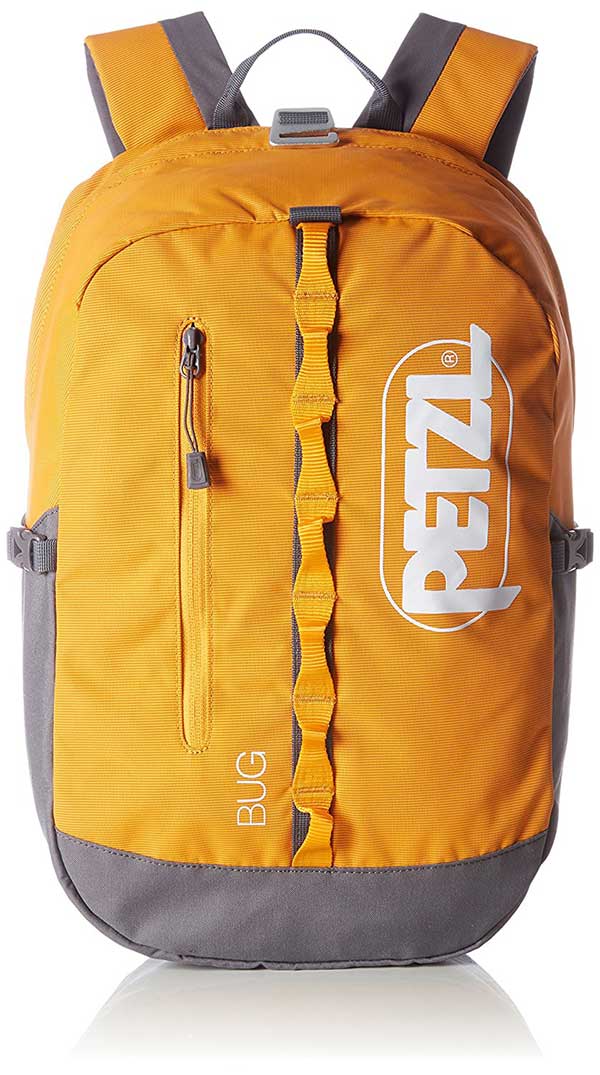
Canyoning backpacks
Backpacks made of waterproof and highly abrasion-resistant materials, with drainage.
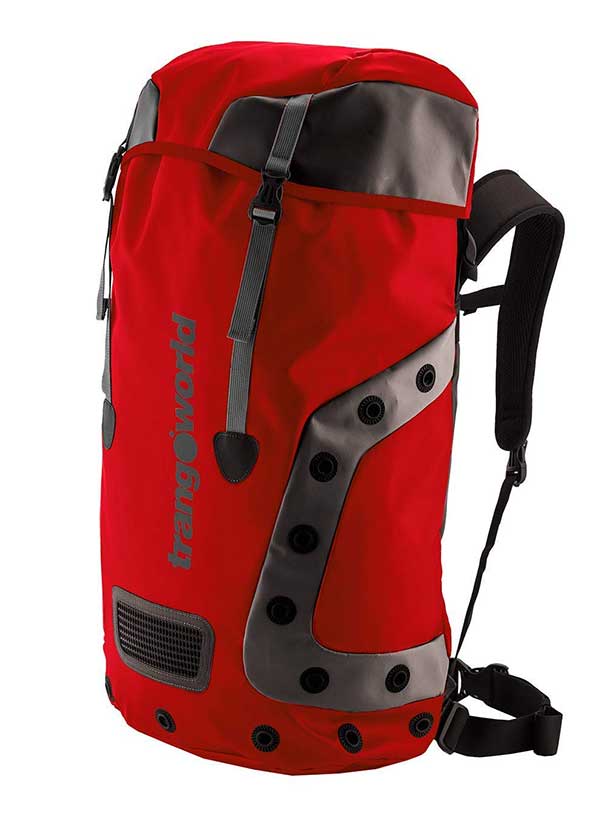
Camping backpack
Of course, there are also special backpacks for those who like to go to the beach. camping. These designs usually include padded back and support to better distribute the weight. In addition, they have an internal frame with one or two aluminium supports to accommodate a heavier load.
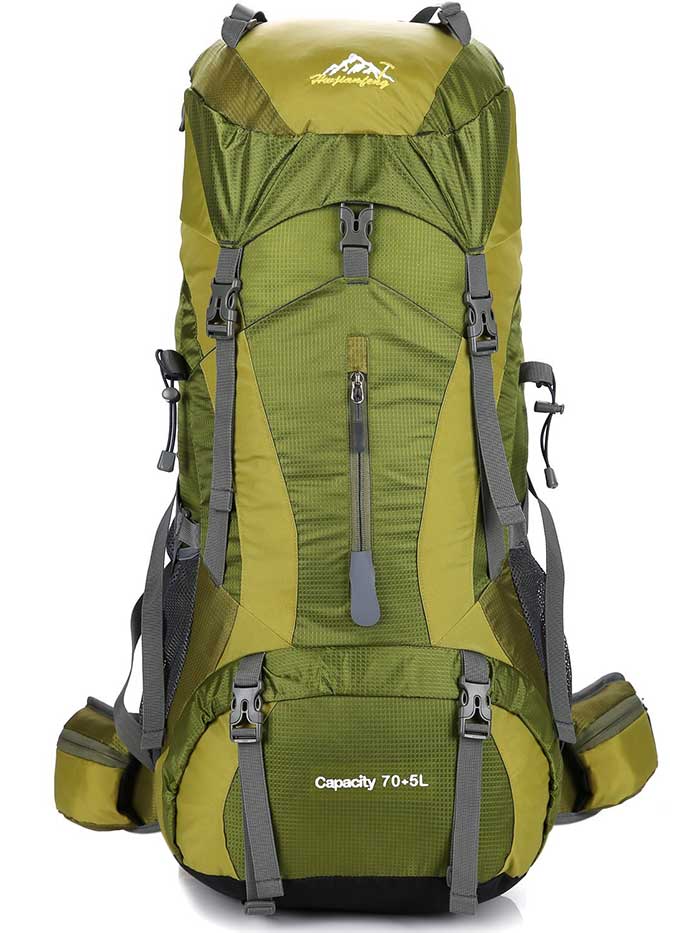
Baby carriers
The baby carriers are equipped with adjustable straps to carry it comfortably on your shoulders, as well as an adjustable harness for the baby. In the following articles we explain how to choose the best baby carrier.
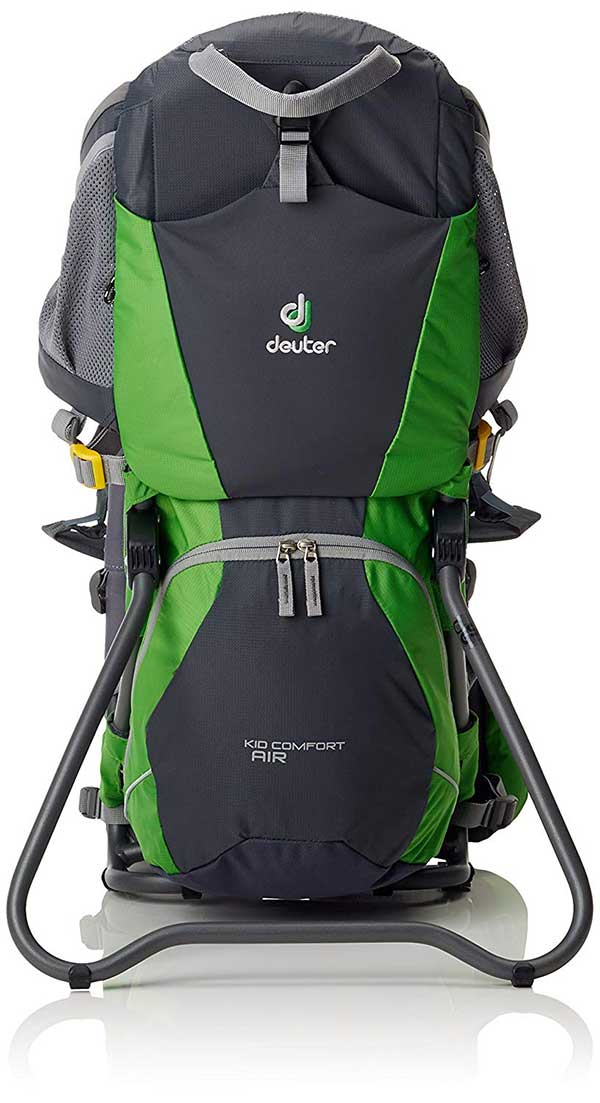
Types of backpacks: Their qualities and elements
Mountain backpacks have a number of particular characteristics, here is an overview of some of the most important ones.
Its structure
You'll also want to consider the different styles of backpacks available, which can be categorised into three main types.
With internal structure
In this case the rigid structure The backpack - usually made of plastic or aluminium rods - is located inside the backpack, which also allows it to carry heavy loads, but because it is more directly attached to the body, it is less ventilated, which can lead to sweating.
The fact that they are more flexible and adjust better to the load makes them a good choice for climbers who do not need to carry too much weight.
With external structure
These types of travel backpacks have a rigid structure on the outsideThey are usually made of a light metal such as aluminium, and although they tend to be heavier, they are quite comfortable and suitable for warm environments, as they are more detached from the body, resulting in less perspiration.
However, because of their hard outer skeleton, they are also usually more bulky and cumbersome, but they are still the most convenient alternative for moving heavy equipment.
No structure
Also called udaily basis, This type of backpack is lighter and smaller, although this is an advantage for the hiker who is looking for more agility and freedom to move in difficult terrain.
It's not too bulky and you can't carry such a big load, so it's ideal for short distances, although it's important to consider that, unlike other types of backpacks where most of the load is on the hips, in this case the main support is on the shoulders.
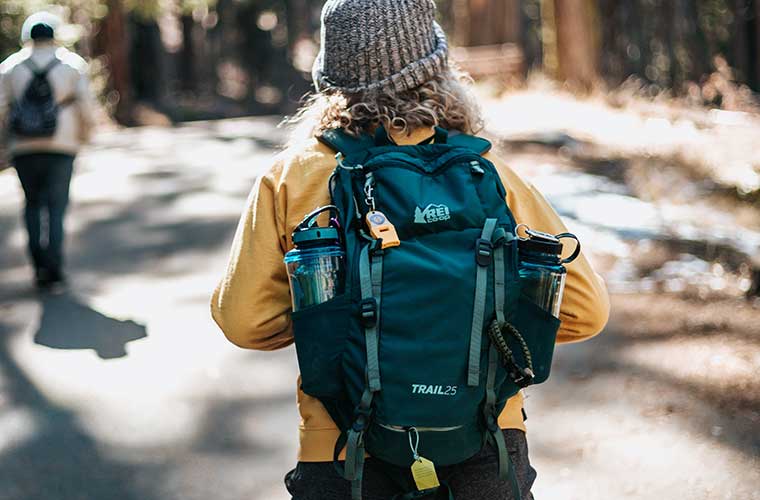
With removable compartment
If your route will take you to camp at a main destination, and after that you will be making several shorter excursions to nearby points, this type of backpack allows you to detach a section as if it were a handbag or a fanny pack, it can be of great use. It should also be noted that there are backpacks on the market that pack down to just the size of a fist, which can perform the same function.
Water bag
If you are going to be walking for several hours, this type of internal liquid section is very convenient, as it will allow you to hydrate while walkingThe water bottle, without having to make complex manoeuvres to get a canteen or bottle of water, which is very practical.
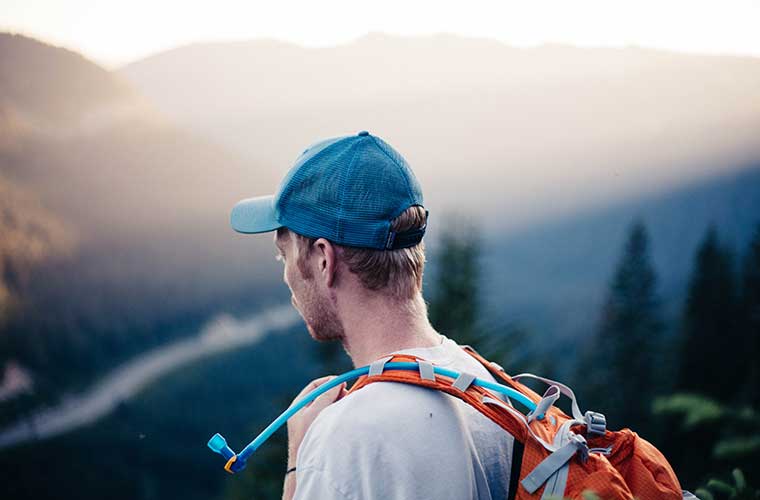
To have tools at hand
If you're looking for alternatives to buying a backpack, the number and distribution of pockets may also be a factor. If you'll require several items of equipment during your trek, you'll want to look for those with easy-access pockets on the outside, but elastic bags are also useful for attaching to objects such as lamps, bottles or ropes.
The pockets on the strap The hip straps are also quite handy for keeping your smartphone or food safe and close at hand in case you get hungry.
Particularly for the mountain hiker, backpacks that include external fixing points They are also very useful, because here you can easily tie your ice axe, the ice axe and the trekking poles or other such accessories.
Waterproof
Although most mountain backpacks have an inner lining to protect against water, under rainy conditions, through the zip, or by the same effect of moisture, you can cause damage and wet the inside; in this sense it is useful those that come with water protection cover, which are usually light and do not take up much space.
Compartment for a tent or sleeping bag
Some come in the form of a pouch at the bottom, and others have a system for anchoring at the top.
READ ALSO:
Backpack adjustment
To verify comfort, the materials are one of the first factors, although it is also important to opt for the ideal sizeThe main factors to be taken into account are twofold, the the size of your torso and the diameter of your hips.
There is no standardised measure for this, but most of the ones labelled as extra smallThe hips and thighs are suitable for bodies no larger than 38 centimetres, measured from the shoulders or the protruding spine bone at the beginning of the neck, and from there in a straight vertical line to the hips.
The size small is usually suitable for torsos of up to 42 cm, the medium for 48 cm, while the category grandeis normally suitable for torsos larger than 51 cm.
Particularly in the case of mountain backpacks, it is also convenient for you to have the 4 main adjustment systems: the hip strapsThe most weight is to be supported by the shoulder strapswhich should allow flexibility to be maintained in the arms; although very close to these we also have the straps to lift the load, with which an angle of approximately 45° should be formed, and will generate that ideal fitting effect. Also suitable are the chest or sternum strapsfor better balance and weight distribution.
Finally, he considers that there are models on the market for designed backpacks for childrenwhich could be a customised alternative.
Test your backpack with some weight, it will help you make sure you choose the best option for your trip.
*All purchase prices included in this article are current as of 26/10/2020.
Fastpacking is not about going faster. It's about going lighter.
If you come from classic trekking, this is the next step: learning to move with less weight,
more fluid and enjoying every kilometre more.
Join the Outsiders Newsletter and start discovering what lightness feels like.
